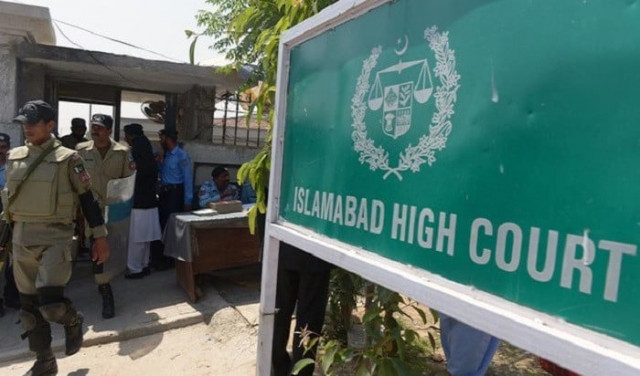Any error in disqualification judgment can cause irreparable harm, says IHC CJ
IHC issues detailed judgment on dismissing petitions seeking disqualification of Zardari, Fawad Chaudhry

Islamabad High Court (IHC) Chief Justice Athar Minallah stated on Thursday that any error in an elected representative's disqualification judgment results in irreparable harm, adding that the parliament can create its own mechanism for holding representatives accountable.
The IHC CJ's remarks came as the court released the detailed judgment over dismissing the pleas seeking disqualification of former president and PPP co-chair Asif Ali Zardari, and Pakistan Tehreek-e-Insaf (PTI) leader Fawad Chaudhry.
“As a judge, I do not claim superiority over the elected representatives,” the chief justice stated in his verdict.
He furthered that the “high standard” of Sadiq and Amin did not exist for any office holder other than elected representatives. Justice Minallah added that this standard did not exist even for “unelected” individuals who have ruled the country for half of Pakistan’s life.
The court maintained that the effects of disqualification under Article 62 (1)(f) were “profound” and that the parliament could create its own mechanism for self-accountability of representatives.
The judgment stated that neither of the two politicians had been convicted by any court of law, and that their disqualification was sought on disputed facts.
Read IHC rejects petitions for Fawad, Zardari's disqualification
CJ Minallah declared that disqualifying an elected representative on disputed grounds requires investigation, adding that political opponents of both representatives would try benefitting from each other's investigations during the process.
“Even if both the elected representatives are declared eligible after the investigation, they will not be compensated for the damage caused to them,” he said.
According to the IHC chief justice, the court's involvement in such investigations “reduces the public’s trust in the elected representative” and wastes the time of the common citizen.
Referring to Pakistan Muslim League-Nawaz (PML-N) lawmaker Khawaja Asif's disqualification, Justice Minallah stated that he was disqualified by the same court, but the Supreme Court accepted his appeal seven months later.
“However, in the meanwhile the people residing in Khawaja Asif's constituency remained deprived of representation,” and he had to face political loss and infamy, it said.
Justice Minallah declared that the people should be empowered to decide who will represent them and that only the people can decide which elected representative is honest and trustworthy.



















COMMENTS
Comments are moderated and generally will be posted if they are on-topic and not abusive.
For more information, please see our Comments FAQ